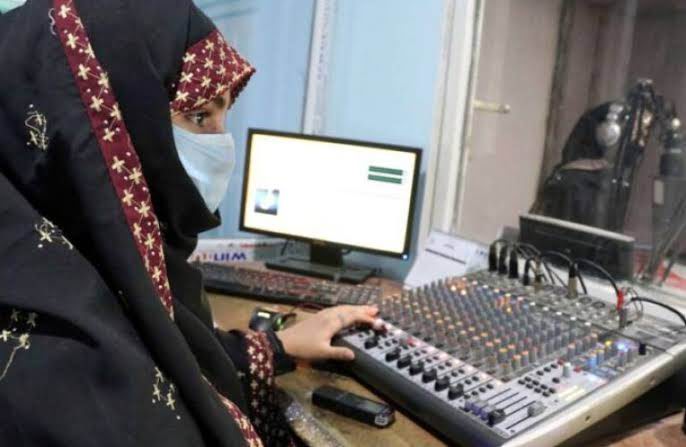KABUL (Khaama Press): Local media outlets in Laghman province, located in Eastern Afghanistan, are struggling with significant economic challenges like those in other parts of the country. These difficulties have greatly hampered media activities in the province, making it difficult for journalists to work effectively.
Local journalists in Laghman province told Khaama Press that media outlets provide them with fewer opportunities. Due to economic issues, they cannot properly carry out their journalistic work.
Zamzama Sapi, an employee at a private radio station in Laghman province, has been affected not only in her work but also in her physical and mental health due to economic problems.
Zamzama, driven by her passion for journalism, has been on duty for several months. Still, she feels that her enthusiasm for the job is fading daily due to the minimal recognition she receives for her work.
On the other hand, some journalists in Laghman’s radio stations state that despite the complex and exhausting work, they do not receive sufficient monthly income, making their lives challenging.
Journalists in the broadcasting and administrative departments of five active radios in Laghman told Khaama Press that existing limitations often force them to leave their jobs.
Suma Kainat, a reporter at “Kawun Ghag” radio, says that working in the media is challenging, but they still love their job.
She says, “Our first problem is that we don’t have enough privileges. If we are given these privileges, we will perform our duties better. Another problem is access to information, as we cannot confidently request information from institutions, or relevant entities do not provide information on time.”
They are concerned that if this trend continues, journalists will face many difficulties in the future.
Haya, who works at another private radio station in Laghman, says that male and female journalists can go to remote areas for work, but female journalists must have a companion, posing a severe challenge to their work.
In addition to national radio and television, five private radios are operating in Laghman, where about eight female employees work alongside dozens of men.
With the advent of the Taliban administration, many media outlets ceased operations. In addition to dozens of men, female journalists also lost their jobs and are currently suffering from psychological and mental illnesses due to journalists’ unemployment.
It is worth mentioning that before the advent of the Taliban regime, there were 530 active media outlets, including about 70 television networks, about 300 radios, and other print media and news agencies, which provided employment opportunities for hundreds of female journalists.







